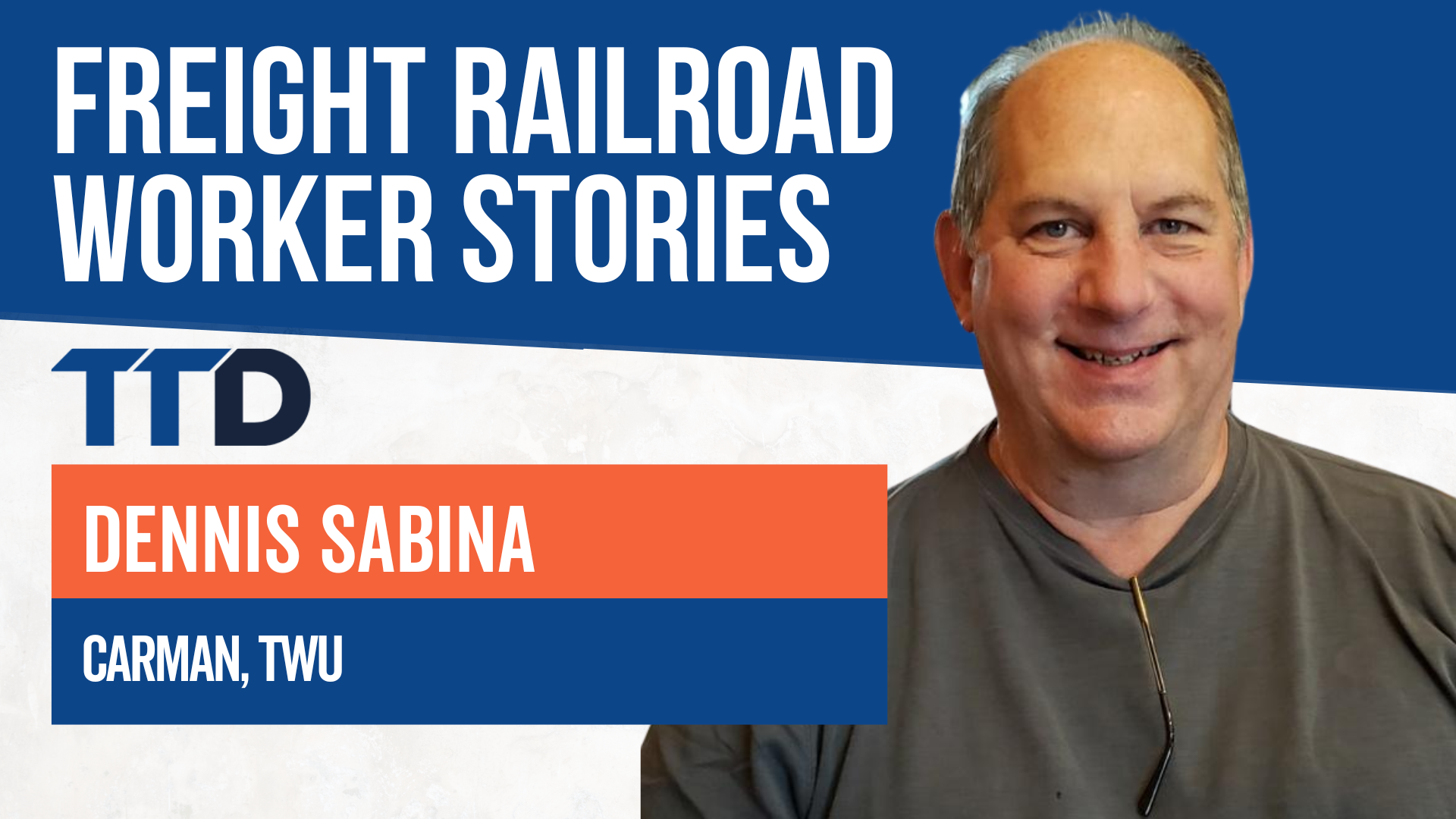
At a recent virtual U.S. Freight Railroad Worker Town Hall, Transportation Trades Department, AFL-CIO, President Greg Regan introduced a group of workers who explained the challenges they’ve faced in their three-year fight for a new contract with U.S. freight railroad companies:
Since 2015, seven major railroad companies made $146 billion in net profits off the backs of these workers. That’s the most money they’ve ever made in the history of railroading—even more than the Gilded Era railroad robber barons. During this same time period, the companies eliminated 45,000 jobs from the industry. Instead of recognizing the value of these workers, the companies have enacted massive job cuts and offered the remaining workers a net pay cut and worse health care benefits than they have now. This is unacceptable.
In the coming days, the AFL-CIO will share the stories of these workers. Check back here every day for more.
Today’s story comes from Dennis Sabina of the Transport Workers Union (TWU). Dennis works as a carman at Norfolk Southern in Conway, Pennsylvania.
Sabina said: “I’ve been a railroader for 17 years. When I started, there were around 100 people and now we're down to about 50, so we've lost half of our workforce. We’ve also lost a lot of equipment that we used to have, like cranes, that we would use in our daily job function. Yet they expect us to keep everything moving the same as it was five or 10 years ago.
“In my department, they aren't hiring. So I still have six students that are laid off, and the railroad isn't bringing them back even though they clearly need more workers. It's all about the bottom dollar for them.
“All the layoffs and everything obviously have put us all into a position to work more. Obviously, that's going to take a toll on our bodies.
“Meanwhile, the workforce has gotten older. Our median age is about 50 years old, I would say. There’s a lot of wear and tear. We're walking on uneven surfaces, and it's just easier when you're 25. Your knees and back and shoulders are wearing out and you slow down over the years.
“I just had a knee replacement because of the walking conditions. Instead of paying to have smooth walking surfaces, the railroad lets us pay the price. We worked through the pandemic; while the management people stayed at home, we had to come and produce for them and keep the trains moving."

